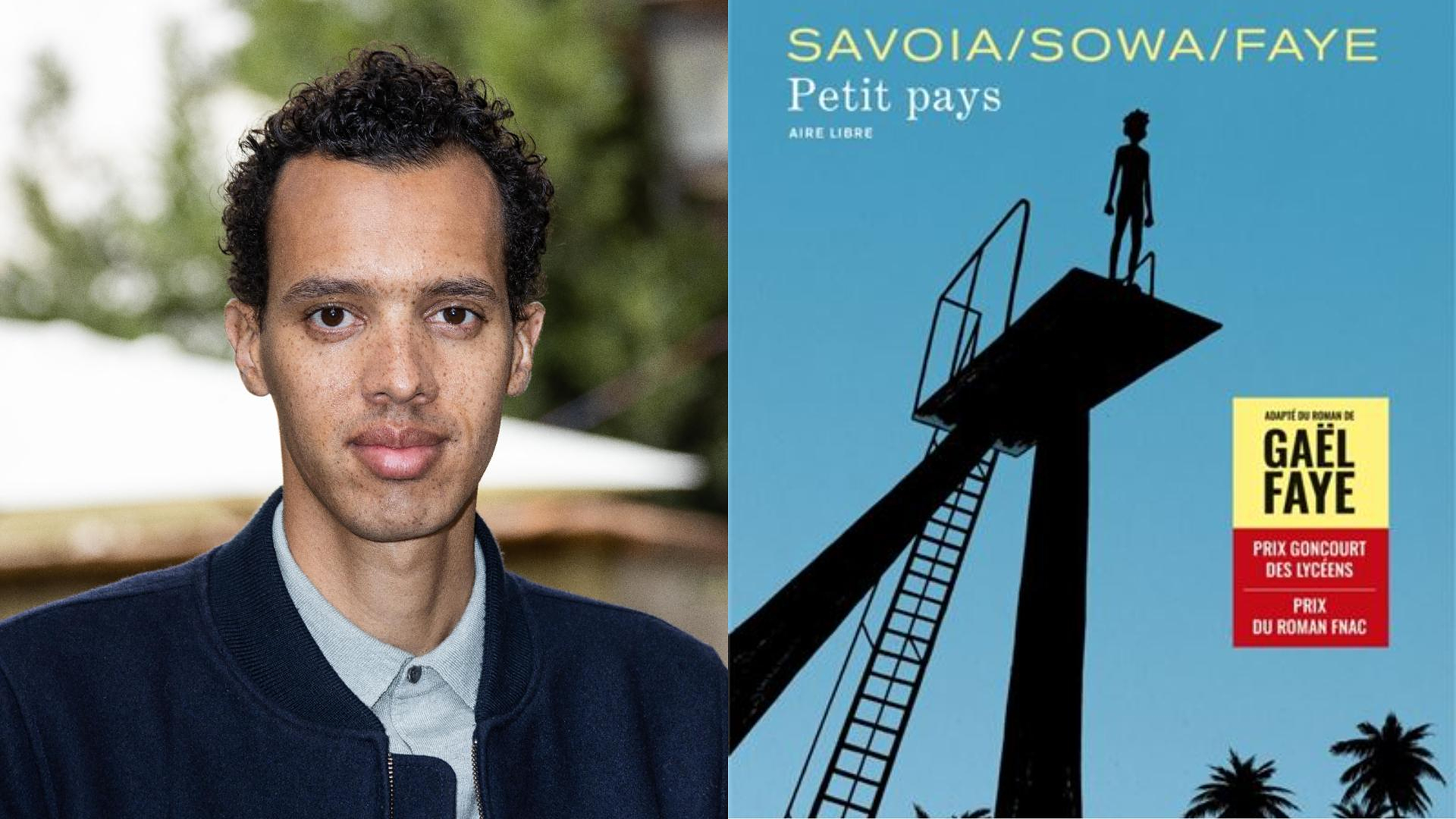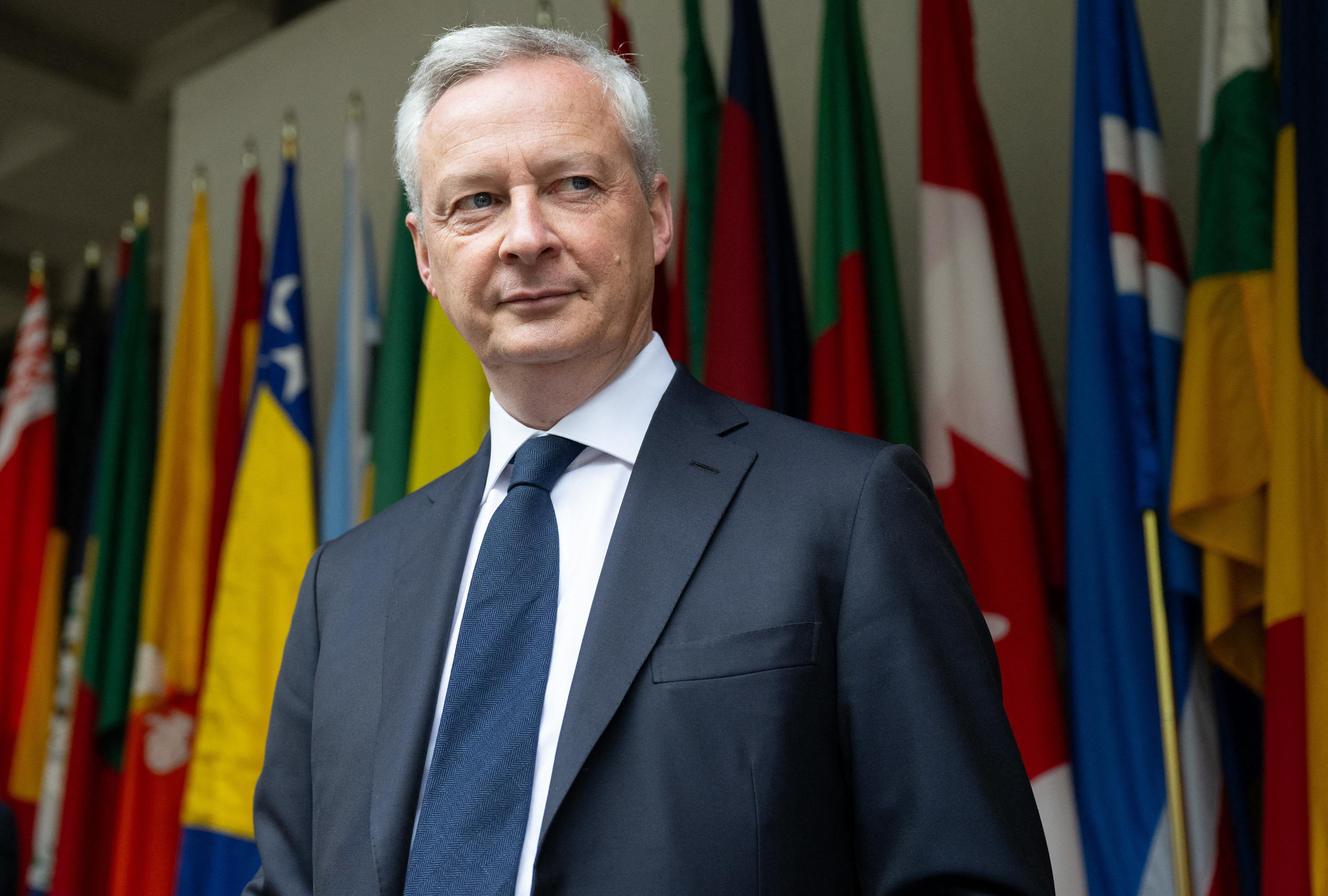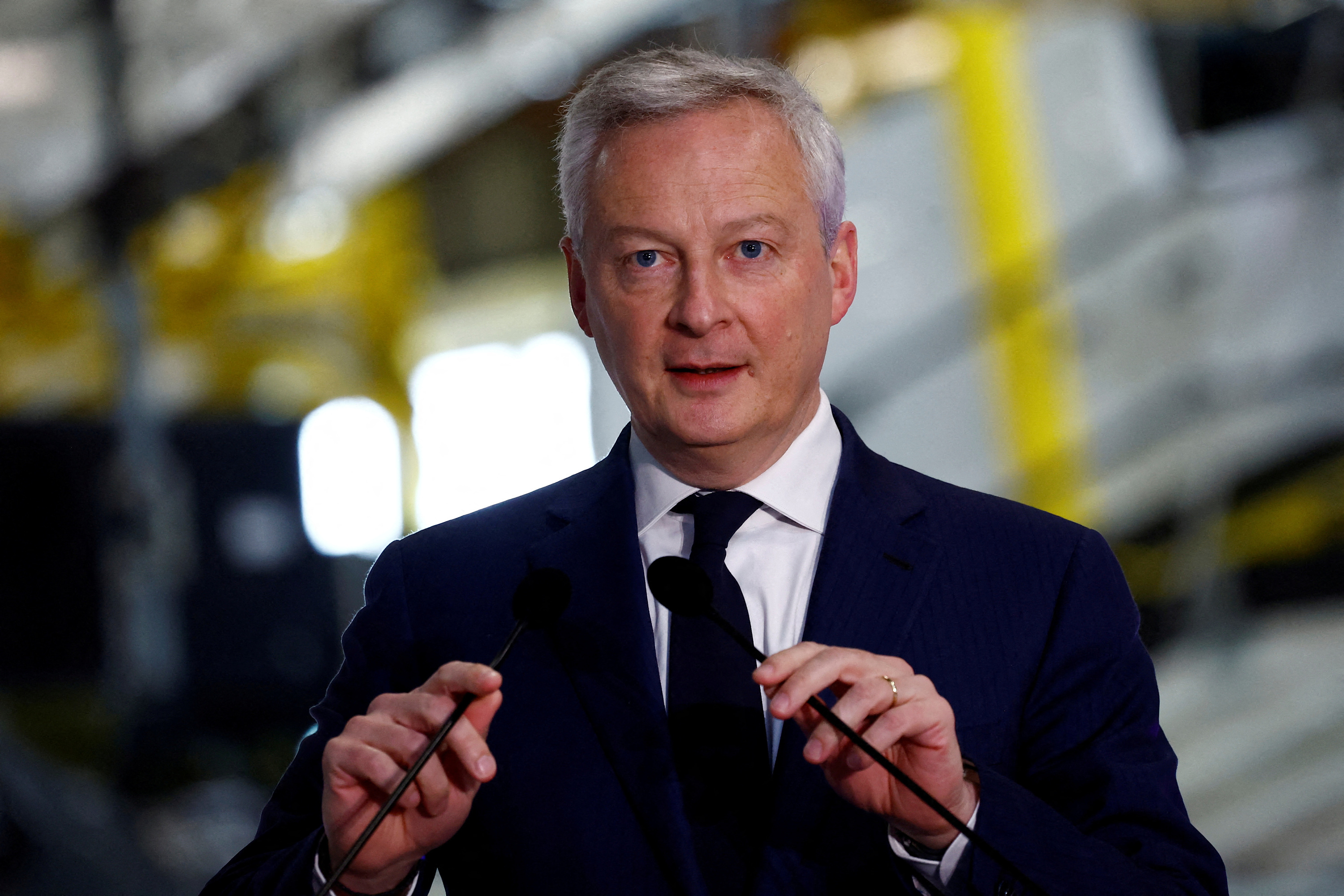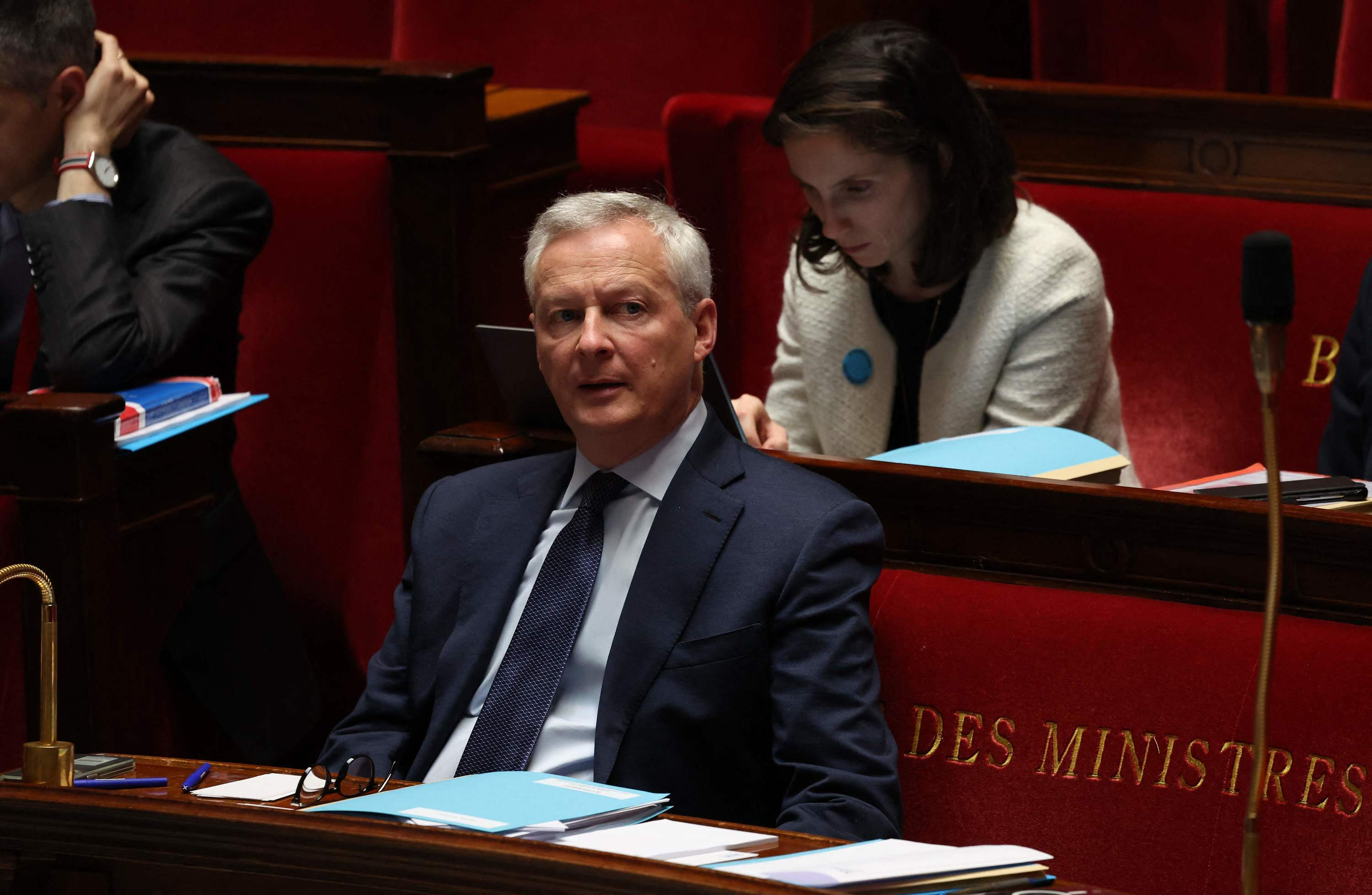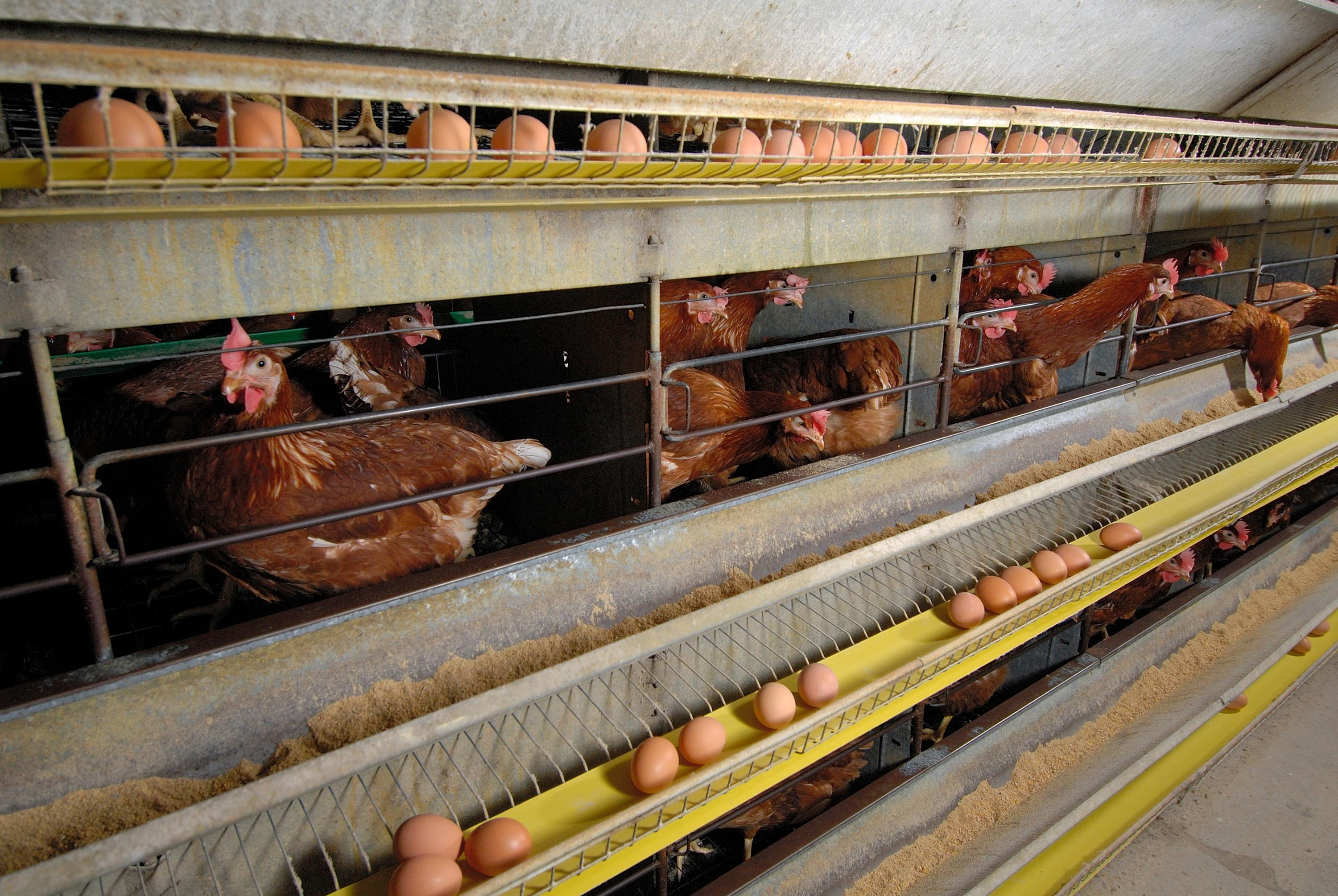Small country has grown again: a story of a childhood impacted by the Rwandan genocide and the war in Burundi, Gaël Faye's best-selling novel is given new life in a poignant comic strip, which appears on Friday.
After having been brought to the screen and on the boards, it is now in the boxes of a graphic novel that the life of young Gabriel, the author's alter ego, unfolds. His story, for those who do not yet know it, is that of a boy in Burundi on the edge of the precipice. In 1992, the Great Lakes country was about to fall into a bloody civil war, while the massacre of the Tutsis was being planned in neighboring Rwanda.
Born to a French father and a Rwandan mother, like Faye himself, Gabriel grew up in Bujumbura, surrounded by this background noise of hatred that he cannot explain and which adults refuse to talk about. “Parents often think that by saying nothing, we protect the children, but that is false,” says Gaël Faye, met with his two co-authors, Marzena Sowa (screenplay) and Sylvain Savoia (drawing), in the offices of the Dupuis editions.
Gaël Faye knows what he is talking about. Like his young hero, the novelist and singer grew up in exile in Burundi in what he calls a “family of silence”. In 1995, at the age of 13, he had to flee the country, a year after the Tutsi genocide which left 800,000 dead and whose thirtieth anniversary has just been commemorated in Kigali. “It’s a coincidence of timing but it’s a good thing. This story must not simply be told through political discourse but also through fiction, so that we can enter it through a more sensitive door,” analyzes the writer, based in Rwanda where he wrote his next novel.
It is also thanks to a work of fiction, the play Rwanda 94 which he saw in 2000, that Gaël Faye “understood the genocide”. “Coming out of there, everything dawned on me. I understood the history of my family, why they had gone into exile,” he says. This piece by the Belgian collective Groupov also forged his conviction that the story around the Tutsi and Hutu ethnic groups was part of “racist theses from the 19th century”. “Knowledge of our history has been taken away from us,” he maintains.
Adapting such a personal story into comics was no easy task. The Franco-Polish Marzena Sowa devoted a year and a half to it, rereading the novel “at least twenty times”, including in its Polish translation, to “dissect” each passage and choose those which she would have to do without to construct a story. chart. “It was very intimidating,” she confides, before adding that she was helped by her own story. Born in Poland in 1979, behind the Iron Curtain, she grew up in the midst of the rise of the Solidarity union and the anti-Soviet protest. She also experienced silences and a family life troubled by politics, which she also chronicled in the graphic novel Marzi. “I felt all this while reading Small Country, even if it’s another culture, another country. There is this universality,” confides the adapter.
The designer's task was not any easier. If the comic focuses on the sometimes carefree life of Gabriel, Sylvain Savoia has devoted a few chilling panels to the massacres in Rwanda and Burundi, to “make us feel the terror that arises in everyday life”. “That’s the big question that arose for me: how to represent what is unbearable?”, he recalls. To ignore it would have been, for him, unthinkable. “We have to show it so as not to give food to the deniers.”
In fact, thirty years later, the memory of the genocide remains vivid, particularly in France where the country's role at the time of the massacres is the subject of an examination of conscience peppered with imbroglios. In the latest example, the French presidency circulated a statement according to which Paris “could have stopped the genocide” but Emmanuel Macron then refused to endorse it. “This story continues and will not stop soon,” predicts Gaël Faye, noting that many of the actors in the genocide are still alive. “Everyone walks on eggshells.”

 What is chloropicrin, the chemical agent that Washington accuses Moscow of using in Ukraine?
What is chloropicrin, the chemical agent that Washington accuses Moscow of using in Ukraine? Poland, big winner of European enlargement
Poland, big winner of European enlargement In Israel, step-by-step negotiations for a ceasefire in the Gaza Strip
In Israel, step-by-step negotiations for a ceasefire in the Gaza Strip BBVA ADRs fall almost 2% on Wall Street
BBVA ADRs fall almost 2% on Wall Street Sánchez cancels his agenda and considers resigning: "I need to stop and reflect"
Sánchez cancels his agenda and considers resigning: "I need to stop and reflect" The Federal Committee of the PSOE interrupts the event to take to the streets with the militants
The Federal Committee of the PSOE interrupts the event to take to the streets with the militants Repsol: "We want to lead generative AI to guarantee its benefits and avoid risks"
Repsol: "We want to lead generative AI to guarantee its benefits and avoid risks" Osteoarthritis: an innovation to improve its management
Osteoarthritis: an innovation to improve its management The yen jumps 3% then falls again, amid speculation of Japanese intervention
The yen jumps 3% then falls again, amid speculation of Japanese intervention A very busy Friday on the roads of Île-de-France before the Ascension Bridge
A very busy Friday on the roads of Île-de-France before the Ascension Bridge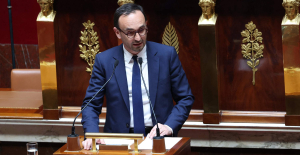 Fraud: the government is preparing new measures for the fall
Fraud: the government is preparing new measures for the fall Nike breaks the bank to keep the Blues jersey
Nike breaks the bank to keep the Blues jersey Madonna ends her world tour with a giant - and free - concert in Copacabana
Madonna ends her world tour with a giant - and free - concert in Copacabana Harry Potter: Daniel Radcliffe “really saddened” by his final breakup with J.K. Rowling
Harry Potter: Daniel Radcliffe “really saddened” by his final breakup with J.K. Rowling Leviathan, New York Trilogy... Five books by Paul Auster that you must have read
Leviathan, New York Trilogy... Five books by Paul Auster that you must have read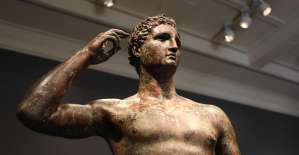 Italy wins a decisive round against an American museum for the restitution of an ancient bronze
Italy wins a decisive round against an American museum for the restitution of an ancient bronze Omoda 7, another Chinese car that could be manufactured in Spain
Omoda 7, another Chinese car that could be manufactured in Spain BYD chooses CA Auto Bank as financial partner in Spain
BYD chooses CA Auto Bank as financial partner in Spain Tesla and Baidu sign key agreement to boost development of autonomous driving
Tesla and Baidu sign key agreement to boost development of autonomous driving Skoda Kodiaq 2024: a 'beast' plug-in hybrid SUV
Skoda Kodiaq 2024: a 'beast' plug-in hybrid SUV The home mortgage firm rises 3.8% in February and the average interest moderates to 3.33%
The home mortgage firm rises 3.8% in February and the average interest moderates to 3.33% This is how housing prices have changed in Spain in the last decade
This is how housing prices have changed in Spain in the last decade The home mortgage firm drops 10% in January and interest soars to 3.46%
The home mortgage firm drops 10% in January and interest soars to 3.46% The jewel of the Rocío de Nagüeles urbanization: a dream villa in Marbella
The jewel of the Rocío de Nagüeles urbanization: a dream villa in Marbella Europeans: a senior official on the National Rally list
Europeans: a senior official on the National Rally list Blockade of Sciences Po: the right denounces a “drift”, the government charges the rebels
Blockade of Sciences Po: the right denounces a “drift”, the government charges the rebels Even on a mission for NATO, the Charles-de-Gaulle remains under French control, Lecornu responds to Mélenchon
Even on a mission for NATO, the Charles-de-Gaulle remains under French control, Lecornu responds to Mélenchon “Deadly Europe”, “economic decline”, immigration… What to remember from Emmanuel Macron’s speech at the Sorbonne
“Deadly Europe”, “economic decline”, immigration… What to remember from Emmanuel Macron’s speech at the Sorbonne These French cities that will boycott the World Cup in Qatar
These French cities that will boycott the World Cup in Qatar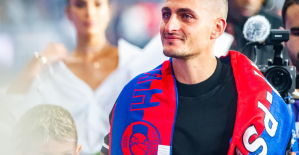 Mercato: Verratti at Barça? A track studied
Mercato: Verratti at Barça? A track studied Rugby: after the defeat during the Six Nations, the Blues will meet the English in September for a test match
Rugby: after the defeat during the Six Nations, the Blues will meet the English in September for a test match Premier League: Liverpool unveils its new jersey for next season
Premier League: Liverpool unveils its new jersey for next season Formula 1: Alpine holds its new executive technical director
Formula 1: Alpine holds its new executive technical director